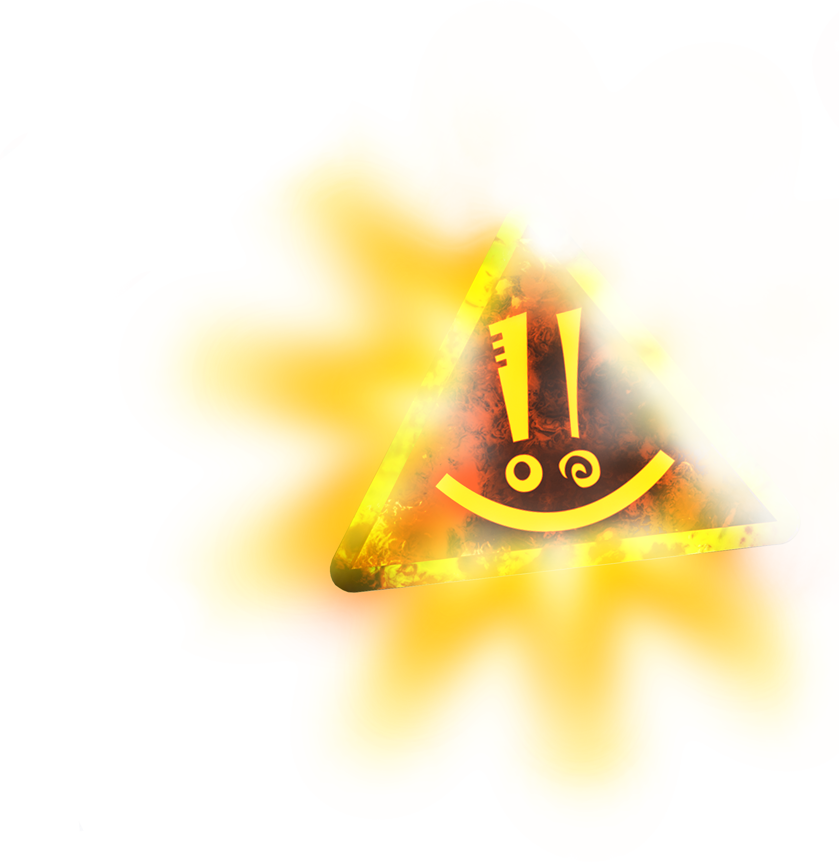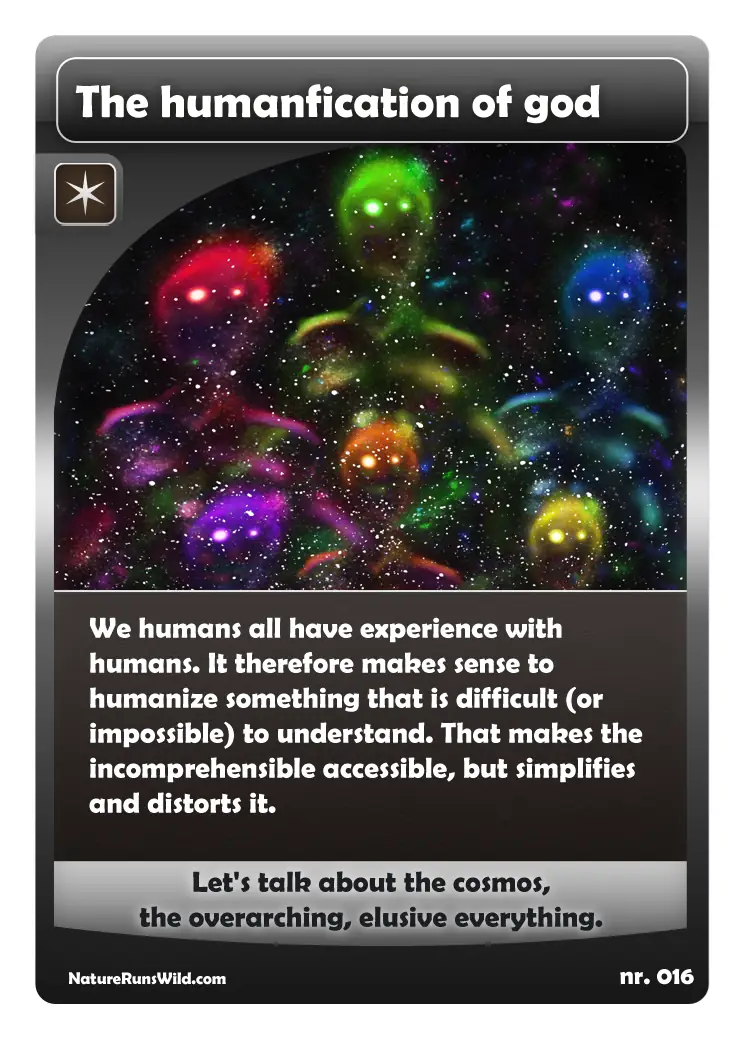
God, what do you mean?
What exactly is your definition of God?
To answer "Do you believe in God? ", you should first ask what God means.
What do you mean?
People like clarity, simplicity; a yes or a no, a good or a bad. In reality, things are usually (infinitely) complex and in our dualistic simplicity we all too easily communicate past each other. Do you want a fleeting judgment, or do you make time for a deeper truth?
No conclusive certainty, but looking at the options with an open, investigative, but critical perspective.
God, what do you mean by that
The discussion has been around for a long time and has strong supporters and opponents, but before choosing a side it might be better to clarify the question so that we are sure we are talking about the same thing. Incidentally, I myself am not traditionally religious, but I try to understand people and their ideas. Investigating yourself, with an open mind, learning from nature, is better than (blind) faith as far as I'm concerned. Every story is based on something and has a core of truth or origin, it just takes time, effort and an open perspective to find out.
God as word
"God" is just a word. When we humans communicate, we do so largely in words. Some languages do not have some words and many words have many interpretations. When you sincerely want to understand someone, it is therefore important to clarify what someone means by the words that are used. A vague question leads to a vague or sometimes unconsciously wrong answer. Do you like fruits? Sure, but do you like all the fruit? Probably not. The question must first be specified by clarifying exactly what you mean, especially with a vague/broad concept such as "God" or "fruit".
God as a being
"The man in the clouds", "our (ultimate) father, full of wisdom and guidance", "The creator of heaven, earth and man". A god as a human being, I don't believe in that. This God is one we would like to have ourselves. We want someone honest and sincere to oversee and protect the people from corruption and cruelty. Someone who can point us in the right direction, who wants the best for us, but who also blows our whistle and draws our attention to our mistakes and ignorance. In this sense, "God" is our teacher, father, creator. A kind of example of the ultimate human, as Nietzsche described the Übermensch. A person who strives to get the best out of himself also looks for an example. (Nietzsche says "Follow thyself!") Isn't that example there? Then we create a fictitious model with the most perfect properties as we as humans can imagine. Partly for this reason (from a historical point of view) God is a white man, the dominant culture creates the ideal.
In India (several) Gods are usually depicted in blue, as a reminder that they are fictional. They are a kind of archetype, an extreme stereotype, a fairytale character, but that does not alter the fact that there can be instructive lessons associated with them. Some of those lessons were pre-dated, others, like some philosophical ideas, are virtually timeless.
Everyone is God
If you assume that "God" is some kind of fictitious ideal, then you can strive for that perfection (you have a goal). That's how we speak of a football god, someone who lives his life to be the best footballer. In this way you can see every human being as part of the whole, every human being is a piece, a shard, a particle of God.
God as an expression of the incomprehensible
You can also see "God" as a solution, a label, an answer, for the elusive and the incomprehensible (incomprehensible is not a correct word, but you know what I mean, language may live :) ). When man did not understand thunder and lightning, they created Thor the god of thunder. In other words, our brain is looking for an answer and if that is not available, our brain creates a (temporary) answer. It is difficult for our brain not to judge. Good and bad usually depends on the perspective you're looking at, but our own perspective is dominant, so from there we judge and put labels on everything (beautiful, ugly, good, bad, tasty, dirty, etc.).
Love is another aspect that is difficult to "capture". Fairy tales sometimes talk about love potions, but they are still not on the market. You may be able to temporarily induce a feeling of love with narcotics/expanding drugs, but love remains something magical and love something elusive and also unique for many. God is love is also often said, partly because it is elusive. Similarly, you can feel love for nature, or experience the beauty of a beautiful sunset, something that you cannot capture in a photo, video or words. All this is an extreme simplification of reality. Nothing comes close to reality.
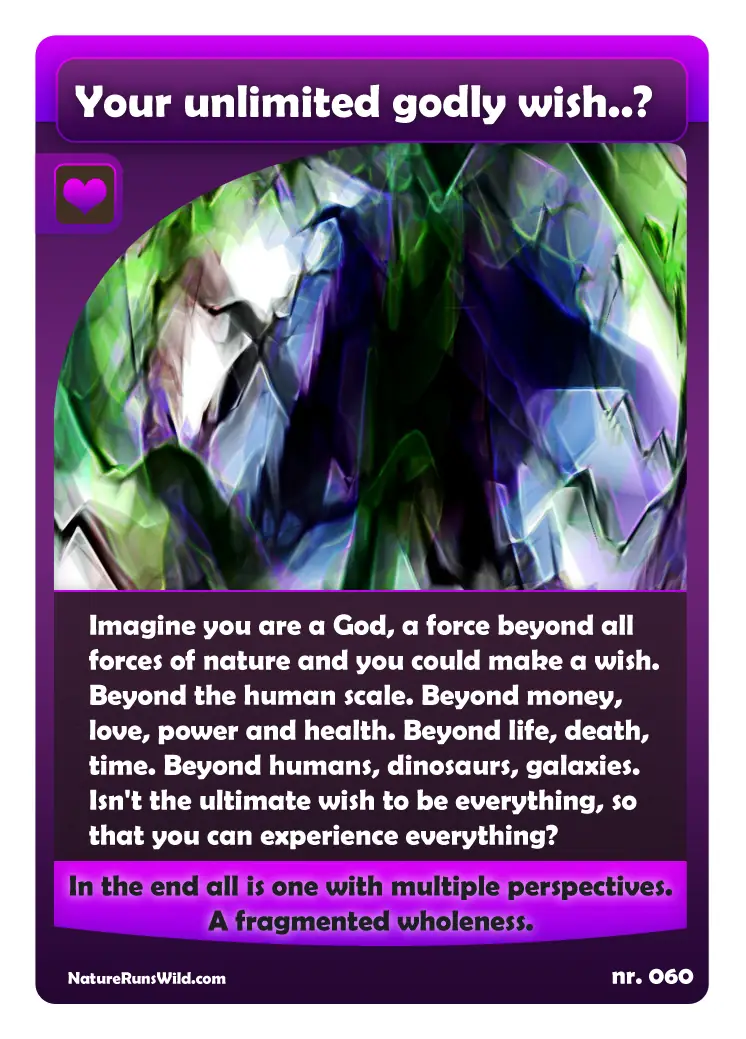
God as the creator
The architect of the universe, the creator of heaven, earth and man. This aspect I think is similar to the one above. Our brain creates a beginning and an end. Every story has a beginning and an end, because our brain can't handle it otherwise. Every human being has a beginning and an end, so we can only apply this to everything. A God who is outside all cycles would not think that way. To a divine perspective, everything would then be infinite, or one coherent whole. You cannot come into being without your parents who begot you. And your grandparents couldn't have existed if there wasn't water on Earth. You could, as it were, see a person as a product of the earth, as an apple from a tree. An apple seems like a loose object, but it cannot be separated from the tree.
God as an space alien
There are also interesting theories that "The gods" came from the sky and may have been extraterrestrials who appear divine from our perspective. Imagine being a mouse and encountering a human, although a mouse is quite a complex creature, humans belong to a much higher level of complexity, partly due to our preservation of knowledge through writings and the internet.
Although this option is often easily put aside, in my opinion this is a very obvious option. Maybe we've been influenced by aliens. Perhaps we are descendants of inhabitants of another planet who have spread their seed, as a flower does in the meadow. The theory that life on Earth began with organisms that arrived here with a comet sounds almost like a flower seed that blows across the ocean and begins to grow "new" on the other side. Nature has many universal aspects.
God as universal energy
To me, this is what spiritual people mean when they "experience God." Not only the knowledge that everything is connected, but actually feeling and experiencing it that way. Every person and animal is a child of the earth and we are all connected, whether we like it or not, that is the only reality. It is only the model our brain builds of the world in which things as separate objects and beings exist.
"God" is everywhere and experiences everything, i.e. it is an overarching all-interweaving abstract energy, which our brain cannot comprehend. Just as consciousness is a kind of transcendence of a human being, which you could think of as a collection of organic devices. Apparently, the sum of those separate devices creates more than we can understand, such as consciousness. Or rather, the other way around! Our brain cuts people into pieces, organs, in order to examine them in a manageable way. A heart pumps blood, the brain processes information, the eyes measure light, the stomach transforms food into energy. We humans make models of pieces of reality through our brains, so that we can reasonably understand those pieces. But in the end, we must remember that no matter how well we think we understand something, no matter how convenient and useful it is, it pales in comparison to reality. Just as no photograph can "capture" the true splendor, depth and vibrancy of a sunset.
Productions of God
If you describe "god" as a universal abstract energy, then you can also understand some "strange claims". With this interpretation, you can confidently say that the Bible or Quran was written by "God", as well as any other book. Every human and creature can claim to be a child of God.
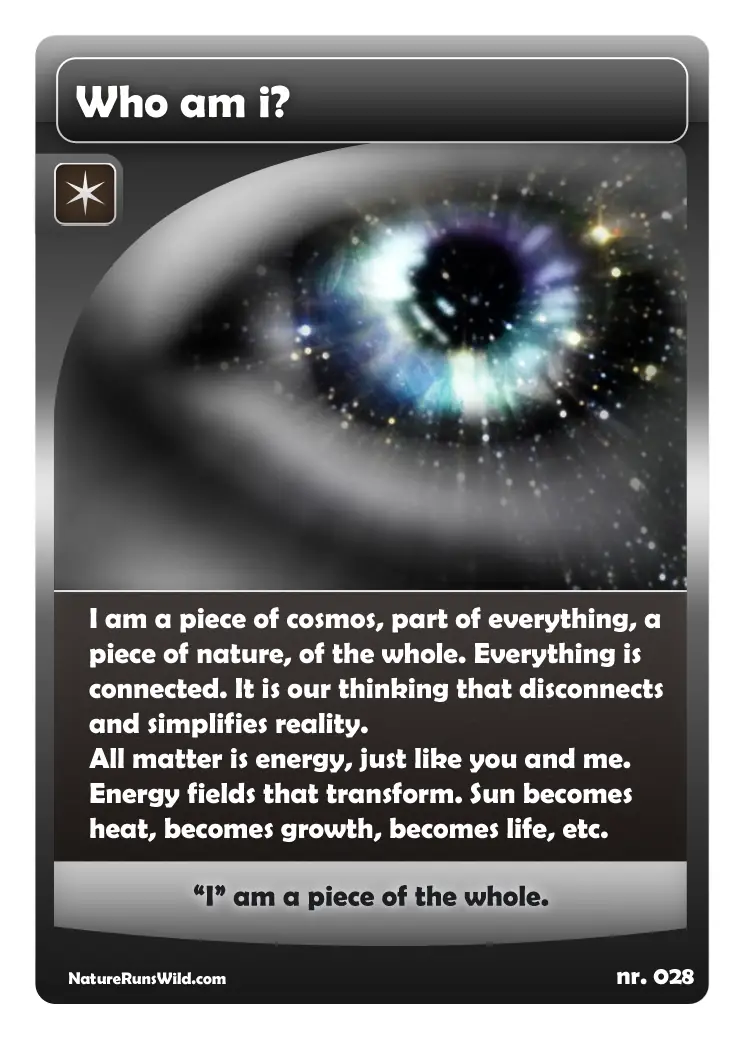
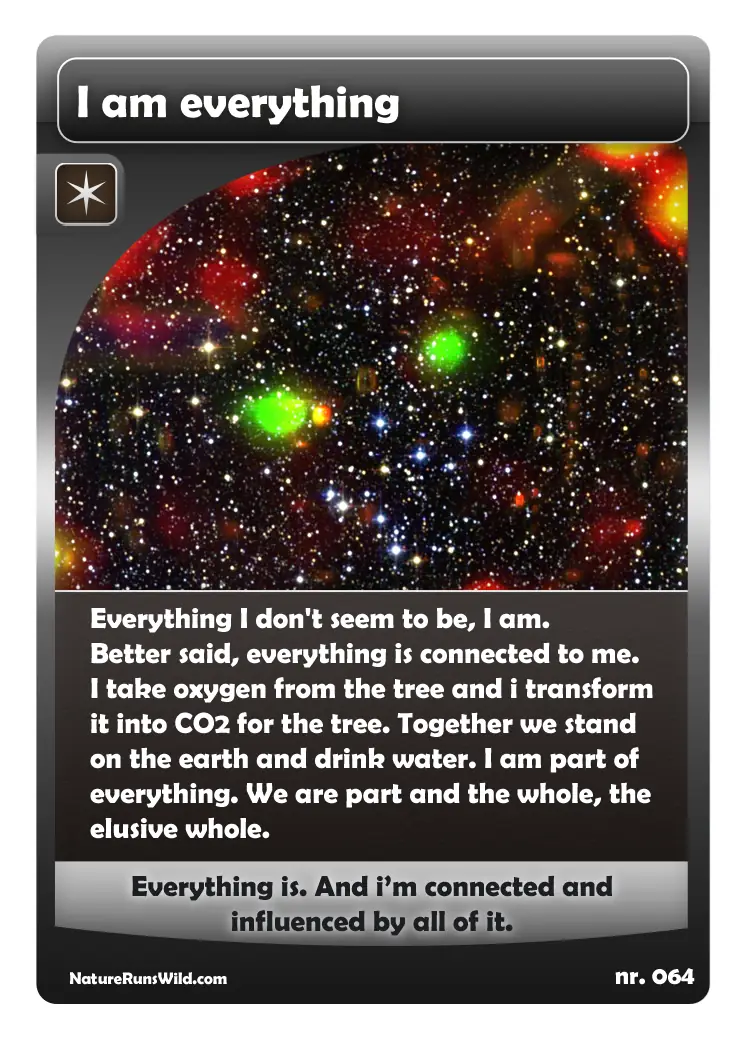
Human
Insight, consciousness & psychology
Nature
Being a part of...
Society
Economy, power, money, property
Spirituality
Consciousness, belief & infinity
Cosmos
Universe, reality, coherence.
Science
Structure, models, (cut) limitations
Reality
That which cannot be simplified
Truth
A fragmented wholeness
Discrimination
Deviation: different & equal
Death
(Life + Death) = Transformation
